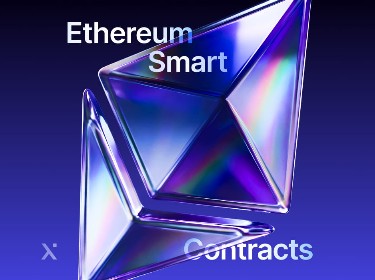For executives, founders, and product teams considering blockchain, smart contracts often appear as the backbone of any serious initiative. The first question, however, is rarely about the technology itself — it’s about the budget. How much will a smart contract cost to design, secure, and maintain?
There’s no universal price tag. Costs change with the logic behind the contract, the blockchain it runs on, the required auditing level, and the team hired to build it. Missing one of these considerations means you risk unexpected expenses, compliance issues, or a solution that fails to scale.
PixelPlex has been designing and auditing smart contracts for more than a decade. We’ve worked on DeFi protocols, NFT marketplaces, enterprise-grade systems, and cross-chain applications. That experience gives us a clear view of how costs form in practice — not just in theory.
This article is written for business leaders, entrepreneurs, and technical specialists who want to understand the financial side of blockchain adoption. We’ll discuss what drives smart contract development costs, where hidden expenses may appear, and what tools and specialists are needed. Along the way, you’ll see how leading providers approach pricing and what that means for companies at different stages of growth. The aim is straightforward: to help you approach smart contract development services with a clear plan and avoid unpleasant surprises.
What’s a smart contract?
Think of a smart contract like a digital vending machine for agreements. Instead of a lawyer or a bank making sure everyone follows the rules, a smart contract does it automatically. You put in your money, and a soda comes out — no questions asked. In the same way, a smart contract is a piece of code that automatically carries out the terms of an agreement once the conditions are met. This all happens on a blockchain, a secure digital ledger. This means no delays, no extra fees, and less chance of mistakes.
Why businesses value them
![]()
Businesses are drawn to smart contracts for a few key reasons:
- They save time and money. A smart contract takes away the need for constant oversight. Imagine a world where invoices pay themselves, or insurance claims get approved the instant a condition is met. Because smart contracts can handle routine transactions on their own, they cut out the middleman and keep things moving quickly.
- They’re reliable. When a smart contract is on a blockchain, its rules are set in stone. The terms can’t be changed later on, so you can trust that the outcome is guaranteed as long as the conditions are met.
- They build trust. Because everyone can see the logic of the contract and verify the results, there’s less room for arguments. This transparency helps build trust, especially between companies that are just starting to work together.
- They’re secure. The security of a blockchain makes it nearly impossible to tamper with a smart contract’s records. That said, it’s still important to make sure the code is written and tested carefully. A poorly written contract can still have vulnerabilities.
High-quality vs poorly developed smart contracts
The difference between success and failure often comes down to quality. Below is a comparison that illustrates what businesses gain — or risk losing — depending on how their smart contracts are designed and delivered.
| Aspect | High-quality smart contract | Poorly developed smart contract |
| Security | Thoroughly audited, resistant to common exploits | Vulnerable to attacks, risk of asset loss |
| Performance | Optimized code, low gas fees, smooth execution | Inefficient, costly transactions, possible bottlenecks |
| Scalability | Designed for growth and integrations | Hard to update or expand, prone to breakdowns |
| Compliance | Built with regulatory requirements in mind | May violate standards, leading to legal risks |
| Business impact | Builds trust, supports adoption, protects brand reputation | Erodes trust, causes financial and reputational losses |
In 2022, Etherisc rolled out FlightDelay, which automatically paid travelers if their flight was late. It’s a neat example of automation improving customer experience while keeping costs lean. That same year, Wormhole had a flaw in its code. Attackers exploited it and minted roughly $320 million. This is what happens when reviews and audits aren’t thorough enough. Both stories circle back to the same truth: smart contracts are only as good as the effort put into writing and testing them.
Types of smart contracts
Smart contracts are not a single, uniform technology. Their design, functionality, and cost vary depending on what they are built to achieve. Some are lean and straightforward, while others form the backbone of large-scale decentralized systems. To make sense of this diversity, it helps to group them into clusters by complexity, automation, business purpose, and the blockchain platform they rely on.
By complexity
Some contracts cover simple logic, such as releasing funds when payment arrives. Others manage ecosystems with thousands of users and interactions. The gap between the two determines the amount of code, the scope of testing, and ultimately, the development bill.
| Subtype | Key features | Example use cases |
| Simple contracts | Few rules, limited scope, quick to develop and audit | Escrow release, basic token swap |
| Complex contracts | Multi-function logic, integrations, require extensive audits | DeFi lending pools, DAO frameworks, NFT marketplaces |
Simple contracts are cost-effective entry points, while complex ones demand significant expertise and resources. Businesses need to weigh ambition against budget and risk appetite.
By automation
Automation level defines how much human oversight is left in the process. Some contracts run fully on their own; others still include checkpoints for compliance or regulatory approval.
| Subtype | Key features | Example use cases |
| Fully automated | Execute without human input once deployed | Flight delay payouts, NFT royalty distribution |
| Hybrid contracts | Combine code execution with external approvals or oracle data | Supplier payments with compliance step, logistics checkpoints |
Fully automated contracts promise efficiency but require flawless coding and reliable oracles. Hybrid models give businesses more control, but at the cost of slower processes.
By purpose
Smart contracts can also be clustered by the problems they solve. From finance to logistics, they serve as digital infrastructure tailored to industry needs.
| Subtype | Key features | Example use cases |
| Financial | Automate lending, borrowing, settlements | DeFi lending, decentralized exchanges |
| Governance / DAO | Token-based voting, treasury rules | DAO decisions, budget allocation |
| NFT | Define ownership rights, royalties, transfers | Digital collectibles, in-game assets |
| Logistics | Track shipments, trigger payments | Supply chain management, vendor invoicing |
| Insurance | Automate parametric claims | Travel or health insurance payouts |
| Legal | Store contracts, notarization, arbitration | Digital notary, compliance automation |
| Cross-chain | Move tokens and data across chains | Token bridges, multi-chain dApps |
Purpose-driven contracts show why costs differ dramatically. A basic NFT drop may be affordable, while insurance or DAO governance requires layered logic and thorough smart contract audit.
By blockchain platform
Blockchain environment sets the technical boundaries for a contract. Some platforms focus on speed, others on compliance, and others on enterprise collaboration.
| Blockchain | Key features | Typical industries |
| Ethereum | Largest ecosystem, proven standards, extensive tooling | DeFi, NFTs, DAOs |
| Solana | High throughput, low fees | Gaming, DeFi |
| Cardano | Formal verification, research-driven | Finance, government |
| Polkadot | Interoperability via parachains | Multi-chain ecosystems |
| Stellar | Optimized for cross-border payments | Finance, remittances |
| Hyperledger | Permissioned, enterprise-grade | Supply chain, banking, healthcare |
Choosing a blockchain for a project is a balancing act. Ethereum smart contract security audit is a proven, well-established way to strengthen your contracts, but its popularity can lead to high transaction costs. On the other hand, Stellar and Solana dApp development are far cheaper to use. The tradeoff is that they may not have the same level of business-readiness or compliance features that some companies need for large-scale operations. It’s all about picking the right tool for the job.
Smart contracts differ in what they do, how they are structured, and where they run. Costs for smart contracts are never a one-size-fits-all solution. A simple project, like creating a digital escrow on Ethereum, could be built in a few days. A much more complex project, like a complete insurance platform on a private blockchain like Hyperledger, could take months of engineering and multiple rounds of auditing. Understanding these differences helps businesses create realistic budgets and choose the right type of smart contract for their goals.
Who do you need to develop smart contracts
The team behind a smart contract project depends a lot on scale. A lean startup can get away with a few skilled people, while enterprise solutions demand an entire ecosystem of specialists. There’s no single formula — but here’s how teams usually shape up.
Startups
When it comes to blockchain for startups, projects often survive with a core developer or two, someone comfortable with Solidity or Rust, and a project manager who keeps things moving. A QA engineer is useful to ensure contracts behave as expected, but many early teams borrow that role from freelancers. The focus is speed and proof of concept, not enterprise polish.
Mid-size projects
Once a product has traction, cutting corners becomes risky. Here you’ll usually see a couple of blockchain engineers, a solution architect, QA specialists, and a dedicated project manager. Legal advisors sometimes join at this stage, especially if the project touches finance or compliance-heavy industries. The idea is to balance innovation with enough governance to avoid costly reworks.
Enterprise solutions
![]()
At the top end, the team can look more like a whole IT department than a small dev shop. Beyond developers and architects, enterprises need compliance experts, DevOps engineers, UI/UX designers, integration specialists for ERP/CRM, and security auditors. These projects also demand business analysts to connect technical design with organizational goals. The number of people grows, but so does the stability and regulatory alignment.
Whether it’s three people hacking an MVP or a twenty-person cross-functional squad, the right team mix determines whether a contract simply runs or scales, stays secure, and supports the business long term.
Blockchain For Big Enterprises: Implementation and Benefits
How Much Does the Crypto Gateway Development Cost?
Code, Capital, and Compliance: A Deep Dive into Canton Network Smart Contract Development
What determines the cost of smart contract development
There is no flat price tag for building a smart contract. The final cost depends on a combination of technical, business, and compliance factors. Understanding what drives expenses helps organizations budget accurately and avoid unpleasant surprises later in the project.
The stakes are high: the global smart contracts market was valued at USD 684.3 million in 2022 and is expected to reach USD 73.8 billion by 2030, growing at a CAGR of 82.2%. This explosive growth is fueled by the rise of blockchain adoption, the boom in DeFi, and the push for efficiency and cost savings across industries. With demand scaling this quickly, getting costs right is no longer optional — it is critical to stay competitive.
![]()
Complexity of logic
The amount of code and the number of conditions in the contract directly affect development time. A simple escrow contract may be written and deployed in days. By contrast, a decentralized lending platform or a multi-party governance system can take months of design, testing, and auditing.
Choice of blockchain platform
Some blockchains are cheaper to build on than others. If you opt for Ethereum smart contract development, you benefit from a robust ecosystem and reliability, but you need to factor in higher gas costs in your overall budget. Solana and Stellar provide faster and less expensive transactions, but may have smaller developer communities. In contrast, Cardano smart contract development often involves formal verification and advanced tooling, which can increase upfront engineering costs but significantly reduce long-term security and compliance risks. Enterprise frameworks like Hyperledger require specialized expertise and integration work, which raises costs.
Security and audits
Smart contracts are immutable once deployed — mistakes can’t be patched like in traditional software. Security audits are therefore non-negotiable. The more complex the contract, the more time and resources audits require. For projects built on high-performance chains like Solana, budgeting for a Solana smart contract security audit is key to identifying vulnerabilities specific to Rust-based programs and ensuring network-specific protection.
Integrations and scalability
Projects rarely exist in isolation. Integrating a contract with existing systems — payment providers, identity services, or IoT devices — adds development layers. Scalability requirements, such as the ability to handle thousands of users simultaneously, also demand extra design work and performance optimization.
Compliance considerations
When a business is in a regulated industry like finance, insurance, or healthcare, a smart contract isn’t just about the code — it’s also about following the rules. This means a contract must be designed to meet standards like KYC/AML (Know Your Customer/Anti-Money Laundering), GDPR (data privacy), or HIPAA (health information privacy). Building these safeguards into the code, and then having legal teams review everything, can significantly increase the cost and complexity of a project.
Team composition and location
Rates differ depending on where the team is based and what skills are required. Hiring a freelancer for a small proof of concept will be far cheaper than contracting a full-service blockchain development company with architects, auditors, and legal experts. Location matters too: teams in North America or Western Europe usually charge more than those in Eastern Europe or Asia.
The cost of a smart contract is shaped by a mix of technical scope, regulatory needs, and the expertise of the team. A lightweight NFT minting contract may cost a few thousand dollars, while a fully audited DeFi platform with compliance features can run into six figures. Businesses planning for smart contracts should treat cost estimation as a strategic exercise, not a line item, since each factor directly impacts security, scalability, and long-term ROI.
How much does smart contract development cost?
Talking about cost in general terms is useful, but decision-makers need real numbers to work with. While every project is unique, market benchmarks help illustrate what companies can expect. Prices vary depending on complexity, required audits, integrations, and compliance needs — but clear patterns emerge.
Cost ranges by complexity
![]()
- Simple smart contracts (escrow, token swaps, NFT minting): Development and testing, if handled by an experienced team, usually cost $2,000- $10,000.
- Moderately complex contracts (DeFi modules, DAO voting systems, insurance claims, logistics automation): Budgets range from $15,000–$50,000, with security audits making up a significant portion.
- Enterprise-grade contracts (multi-chain DeFi platforms, compliance-heavy insurance or banking solutions, cross-chain interoperability): Depending on team size, audits, and regulatory reviews, costs can reach $100,000- $150,000+.
Additional cost factors in smart contract development
Audits
Security audits are the single most crucial add-on cost. A simple escrow contract might need a basic review for $5,000–$15,000, but investors demand top-tier audits from well-known firms when millions of dollars flow through a DeFi protocol. Those reviews can reach $50,000–$100,000+, often requiring multiple rounds. Skipping or underfunding audits is risky: history has shown that exploits cost exponentially more than prevention.
Integrations
Smart contracts rarely stand on their own. They usually have to plug into other systems — an oracle to bring in price feeds, a payment gateway to move funds, or enterprise tools like ERP and CRM. Each of those links takes extra design and testing, and they don’t just run on autopilot once deployed. In practice, integrations often add $5,000–$20,000 to the budget, and in industries like logistics or finance, where reliability is critical, the bill can climb well above that.
UI/UX and user interaction
The contract itself is backend code, but users expect a simple way to interact with it. A front-end dashboard, web portal, or mobile app often becomes necessary. Building this interface usually costs $10,000–$40,000, and in some cases, it equals or exceeds the cost of the contract itself. UX quality can make or break adoption for consumer-facing products like NFT marketplaces or DeFi apps.
Ongoing maintenance
![]()
A contract’s code might be fixed on the blockchain, but the world around it constantly changes. Network upgrades, standards shift, and new risks are discovered sooner or later. That’s why teams can’t treat deployment as the finish line. A realistic budget sets aside 15–20% of the original build cost each year for monitoring, updates, and support. Without that, a contract that worked perfectly on day one can quickly fall behind or expose the business to security issues.
How to reduce the cost
Building a smart contract doesn’t have to drain the budget. Quality always carries a price tag, but there are ways to manage it without taking shortcuts on security. The trick is to cut down on wasted effort, reuse what’s already been tested, and lean on the right stack of tools.
Reuse and modular design
Not every project should start with a blank screen. Developers can save weeks by adapting well-known frameworks rather than reinventing the wheel. On Ethereum, for instance, the OpenZeppelin library offers audited templates for tokens, governance, and access control. Using code like this means less custom writing, fewer bugs, and faster delivery — all of which directly lowers cost.
Choosing the right blockchain
Some blockchains are more expensive than others, and not just because of development rates. Ethereum has the broadest ecosystem but comes with high gas fees. Solana and Stellar are cheaper, but hiring skilled developers may be harder — finding an experienced Solana smart contract development company, for instance, can be a challenge. Enterprises often prefer Hyperledger because it simplifies compliance, though integration can push the budget up. Picking the wrong chain early is one of the easiest ways to waste money later.
Testing and security
Catching a bug after deployment is expensive — sometimes catastrophic. That’s why early testing pays for itself. Tools like Remix IDE, Truffle, or Hardhat let teams simulate contract behavior and run through edge cases before launch. Security checkers such as Slither and MythX flag common vulnerabilities automatically, cutting down the hours an external auditor spends.
DevOps and monitoring
The contract isn’t “done” once the code compiles. It has to be deployed, updated, and monitored. Automating this process through CI/CD pipelines and platforms like Tenderly or Alchemy keeps things predictable. For large projects, automation saves time and reduces the risk of costly mistakes during upgrades or redeployments.
Reducing costs doesn’t mean cutting corners. It means being smart about design choices, avoiding unnecessary rewrites, and relying on tools that make testing and deployment more efficient. Teams that work this way deliver contracts that are cheaper to build and safer and easier to maintain in the long run.
Smart contract development tools
| Category | Purpose | Examples |
| IDEs & frameworks | Write, compile, and test contracts in controlled environments | Remix IDE, Truffle, Hardhat |
| Libraries & templates | Reuse audited modules for tokens, access control, governance | OpenZeppelin, web3.js, ethers.js |
| Testing & debugging | Run simulations, check logic, catch errors early | Ganache, Hardhat Network, Brownie |
| Security & auditing | Identify vulnerabilities, automate checks | Slither, MythX, Oyente |
| Deployment & monitoring | Automate deployment pipelines, track contract behavior after launch | Infura, Tenderly, Alchemy |
Cryptocurrency Regulations for This Year Update
What Does Your Fashion Brand Win From NFTs?
Choosing a Blockchain Development Company This Year
Top smart contract development companies in 2025-2026
The choice of a development partner is often as critical as the technology itself. A strong team can deliver secure, efficient, and compliant contracts, while the wrong choice can result in delays, overspending, or vulnerabilities.
To provide an objective market view, we’ve reviewed open industry resources and independent ratings from Clutch. A handful of companies consistently appear as leaders in smart contract development. Rankings vary by specialization — some firms are strongest in Ethereum tooling, others focus on Hyperledger or enterprise integration, while a few are known primarily for security audits. However, we have focused only on the cost of smart contract development solutions.
Top 10 smart contract development providers
| Company | Headquarters | Service scope | Min project size | Average cost range |
| PixelPlex | United States | Blockchain, AR/VR, AI, Internet of Things, mobile, etc. | $25,000+ | $50 – $99 |
| Artiffine | Czech Republic | Web3 strategy, design, smart contracts, web & app development, legal & compliance, tokenomics modeling | $10,000+ | $50 – $99 |
| 4soft | Poland | Blockchain, AI development | $10,000+ | $50 – $99 |
| Webisoft | Canada | Blockchain, product development, AI development | $5,000+ | $50 – $99 |
| Newwave Solutions | Vietnam | Blockchain, software development, Internet of Things, AI development | $5,000+ | < $25 |
| SpaceDev | United States | Blockchain, web and mobile app development | $25,000+ | $50 – $99 |
| Vention | United States | Blockchain, software development, AI development | $25,000+ | $50 – $99 |
| Innowise | Poland | Blockchain, Big Data, AI, RPA, Internet of Things, AR/VR | $10,000+ | $50 – $99 |
| Dev Technosys | India | Blockchain, mobile development, Internet of Things | $10,000+ | $25 – $49 |
| SENLA | United Kingdom | Blockchain, software development, Big Data | $25,000+ | $25 – $49 |
Ultimately, the best partner is the one who can translate your business model into secure, efficient, and future-proof smart contracts while balancing budget, timelines, and compliance needs.
Conclusion
Smart contracts have become the backbone of blockchain-powered solutions, but understanding their cost is just as critical as grasping their potential. Prices vary depending on logic complexity, blockchain choice, security audits, integrations, and ongoing support. Skimping on any of these areas risks more than budget overruns — it risks security breaches, compliance failures, and loss of trust.
PixelPlex has spent more than a decade helping clients navigate these challenges through blockchain consulting services that align technology with business goals. Whether it’s advising startups on how to build their first blockchain product, delivering enterprise-grade blockchain integration services, or engineering NFT, DeFi, and DAO ecosystems, we’ve seen firsthand what it takes to design contracts that scale securely.
If you plan to launch or expand a blockchain project, the right partner can help you estimate costs accurately, avoid hidden risks, and deploy solutions that deliver long-term value. With the right approach, smart contracts don’t just automate processes but create lasting advantages in speed, trust, and efficiency.
FAQ
A DeFi smart contract development company builds decentralized finance solutions such as lending platforms, liquidity pools, and decentralized exchanges. These require strong security audits and compliance with financial regulations due to the high value at stake.
DAO (Decentralized Autonomous Organization) smart contract development creates governance systems where voting, budgeting, and treasury management happen transparently on-chain. Proper design ensures fairness, scalability, and protection against manipulation.
BSC smart contract development services focus on creating contracts on Binance Smart Chain, which offers low fees and fast transactions. It’s popular for DeFi, gaming, and NFT platforms where cost efficiency and speed are priorities.
Crypto wallet development services provide secure interfaces for users to interact with smart contracts. Wallets manage private keys, sign transactions, and display balances, making it possible for businesses and individuals to use DeFi, NFTs, and DAOs safely.
Crypto payment solutions development often relies on smart contracts to automate invoicing, recurring payments, or escrow functions. This improves settlement speed, lowers fees, and ensures transparency between merchants and customers.
Because smart contracts are immutable once deployed, bugs can’t be patched easily. Security audits detect vulnerabilities before launch. Basic smart contract audit may cost $5,000–$15,000, but DeFi protocols often require $50,000–$100,000+ for top-tier reviews.
Check whether an NFT smart contract development company has built real NFT marketplaces or collections, not just experimental projects. A strong NFT smart contract development company will also handle royalties, metadata standards (ERC-721, ERC-1155), and scalability on Ethereum, Polygon, or Solana chains.
DeFi projects move large amounts of capital, so the key is a Canton.Network smart contract development company with proven security audits, experience in liquidity pools, tokenomics, and regulatory awareness. Always ask about past projects, open-source contributions, and whether they work with independent auditors.
It usually starts with a business analysis and use case design, followed by architecture planning, writing the contract logic, and then testing. Security reviews and audits are the final steps before deployment. After launch, monitoring and maintenance continue as the ecosystem evolves.
A simple NFT contract can be written and launched in 1–2 weeks. Depending on features and audit depth, a DeFi platform with staking, governance, and liquidity pools may take 3–6 months.




